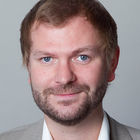Decolonisation et al.
Where are the African voices?
Adaawen, Stephen / Benjamin SchravenThe Current Column (2019)
Bonn: German Development Institute / Deutsches Institut für Entwicklungspolitik (DIE), (The Current Column of 4 February 2019)
Bonn, 4 February 2019. These days, Africa is more prominent in public and political discourse in Germany and the rest of Europe than perhaps at any other time since the end of colonialism. This is illustrated most clearly by three debates or questions that have not just caused major turbulence (of a diplomatic nature in some cases) in recent times: what should be done to tackle the root causes of forced displacement and irregular migration from Africa? How might one go about finding a fair way of dealing with art and artefacts looted during the colonial era – or is such a thing even possible? Is the CFA franc – the twin single currency used in West and Central Africa – a post-colonial instrument of power being wielded by a France that has never really given up control over its former African colonies? Unlike in the past, however, the “colonial master” style that many Europeans used to display is now increasingly passé. The call to “decolonise” key areas of science, research, culture and politics and enter into a dialogue of equals with Europe’s neighbouring continent and its people is growing ever louder. But where exactly are the African viewpoints in these debates? Unfortunately, their voices still struggle to be heard in many areas of public life. This has to change. Men and women with African roots have been a firm fixture in (top-level) sport in Germany for a long time now, and their performances and achievements win them the support and adulation of their clubs and millions of football fans. There are also many Afro-German faces in the entertainment industry, with artists such as Samy Deluxe, Eunique and Afrob amongst the leading lights in their music genres in Germany. And, only yesterday, Florence Kasumba became the first police inspector of African origin to enter service in Germany’s longstanding crime series classic “Tatort”. In political life in particular, however, the situation is completely different: after thinking long and hard, some people might hit upon Karamba Diaby, a Senegal-born member of the Bundestag for the SPD. But aside from him? Although there are, of course, African or African-born scientists, cultural representatives and journalists living in Germany too, the debates referred to earlier above are nevertheless extremely Eurocentric. If one considers the German debate on the root causes of displacement, for instance, some contributions made to date give the impression that it all depends first and foremost on Europe: by exporting fewer arms, emitting less greenhouse gases and ramping up development cooperation and migration control, they argue, the problem would be solved in the long term. Although anyone pursuing this line of argument may well be inspired by their own hubris, they are certainly guilty of an oversimplification. The causes of displacement and irregular migration are extremely complicated and cannot simply be boiled down to poverty, climate change or the legacy of colonialism. Rather, factors including local conflicts and specific political circumstances on the ground play a major role. Tackling these problems also requires an in-depth knowledge of the complex social, economic and political conditions in the over 50 countries that make up Africa. Unfortunately, many Germans still have a tendency to regard the continent of Africa as a single country. In the debate about overcoming the problems facing the African countries, therefore, many people also gravitate towards simplistic, one-size-fits-all solutions instead of heeding the expertise of locals. Similarly, the debate over coming to terms with Germany’s colonial history, which has recently centred around the questions of compensation or returning stolen artefacts, has revealed a rather muted willingness to involve the African side or groups from the African diaspora. Thus it is easy to get the impression that endeavours of this kind are chiefly projects of the European or “white” elite in which the power to interpret the colonial period and its legacy lies primarily with one side – namely in Europe. Of course, this would make a mockery of the very point of decolonisation, i.e. freeing Africa from the European way of seeing and interpreting the world. It goes without saying that there are already some positive signs of cooperation on an equal footing, in science and research for instance. One of these is the AIMS Initiative, a scheme funded primarily by the Humboldt Foundation for mathematical research at various African universities, which is managing perfectly well without a European lead. The “reform partnerships” from German development cooperation with African countries such as Ghana and Côte d’Ivoire are other generally positive examples. Yet only if we manage to stop talking mainly about and start talking more with Africa, its people and its diaspora we can hope to actually bring about decolonisation in our discourse as well. And only in this way will Africa and Europe be able to learn from each other how to overcome both their common problems and those specific to one side or the other.
Stephen Adaawen is a Ghanaian freelance consultant and researcher living and working in Germany. His work focuses on migration, climate change and rural development.


